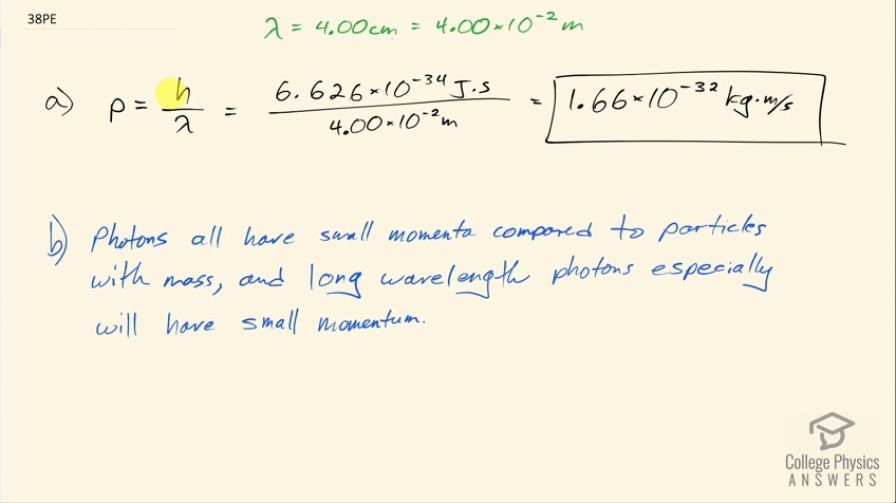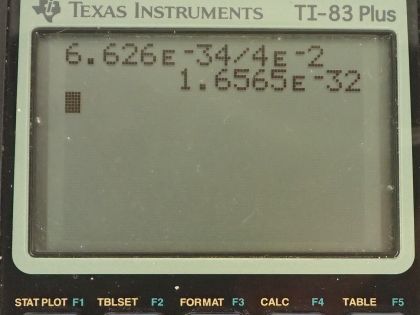Question
(a) Find the momentum of a 4.00-cm-wavelength microwave photon. (b) Discuss why you expect the answer to (a) to be very small.
Final Answer
- Photons all have small momenta compared to particles with mass, and long wavelength photos will especially have small momentum.
Solution video
OpenStax College Physics for AP® Courses, Chapter 29, Problem 38 (Problems & Exercises)

vote with a rating of
votes with an average rating of
.
Calculator Screenshots
Video Transcript
This is College Physics Answers with Shaun Dychko. What is the momentum of a photon that has a wavelength of 4.00 centimeters? Well the momentum is Planck's constant divided by that wavelength that's 6.626 times 10 to the minus 34 joule seconds divided by 4.00 centimeters, written as 4.00 times 10 to the minus 2 meters and that's 1.66 times 10 to the minus 32 kilogram meters per second. That's extremely small and we expect all photons to have a small momentum compared to particles that have mass and long wavelength photons such as this microwave will be especially prone to small momentum because wavelength is in the denominator of this expression here and so as the denominator gets bigger, the quotient gets smaller.
